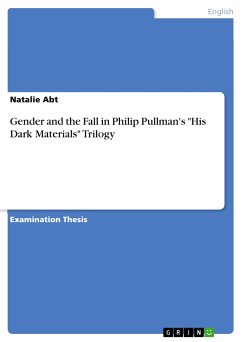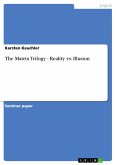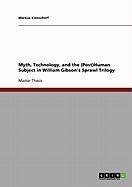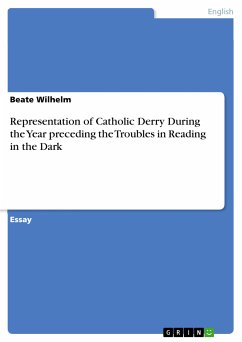Examination Thesis from the year 2007 in the subject English Language and Literature Studies - Literature, grade: 2,0, University of Tubingen, language: English, abstract: There is hardly any story about the origin of human beings that is as well-known as that of Adam and Eve. In every culture and religion legends exist of how mankind came into being, what our function on earth is, why we are mortal and where evil originates from. Hardly any story has had such an immense and lasting influence as the Christian story of the Fall of Man: every child knows the names of the first human beings, countless literary works refer to them, and numerous theories as to the intention of the story have been made. The text has been interpreted literally as well as allegorically, depending on the cultural, temporal and religious background of the interpreter, on the purpose (what they wanted to read out of the text) - and on the sex of the respective reader. Often enough, the story of the Fall served as a justification for discrimination of women and has thus become "the one that has been most generally abused" (Bal 2001: 149) - one starting point for scientists to engage in the origins, reasons, development, and actual status of misogyny. Starting with feminism, scientists have enlarged their field of work to gender relations in general. Today, we live in a place and time where women and men have equal rights, equal jobs and an equal social status. We think of social inequalities as happening either far away in place or long ago in time. We have the first female German Chancellor ever; a woman has the power to lead and represent our country. But still, a female Chancellor is unique and special in Germany. We find ourselves at the height of a debate about the sexes in society, in politics, and among scientists. The work of scientists and feminists has been going on and developing for the last three or four decades and is one of the reasons why today's society is as equal as it is. This does not mean, however, that the only objective of the so-called gender studies is to bring about equality - on the contrary, even in apparently equal societies there is a lot more to examine than the status of women.
Dieser Download kann aus rechtlichen Gründen nur mit Rechnungsadresse in A, B, BG, CY, CZ, D, DK, EW, E, FIN, F, GR, HR, H, IRL, I, LT, L, LR, M, NL, PL, P, R, S, SLO, SK ausgeliefert werden.









